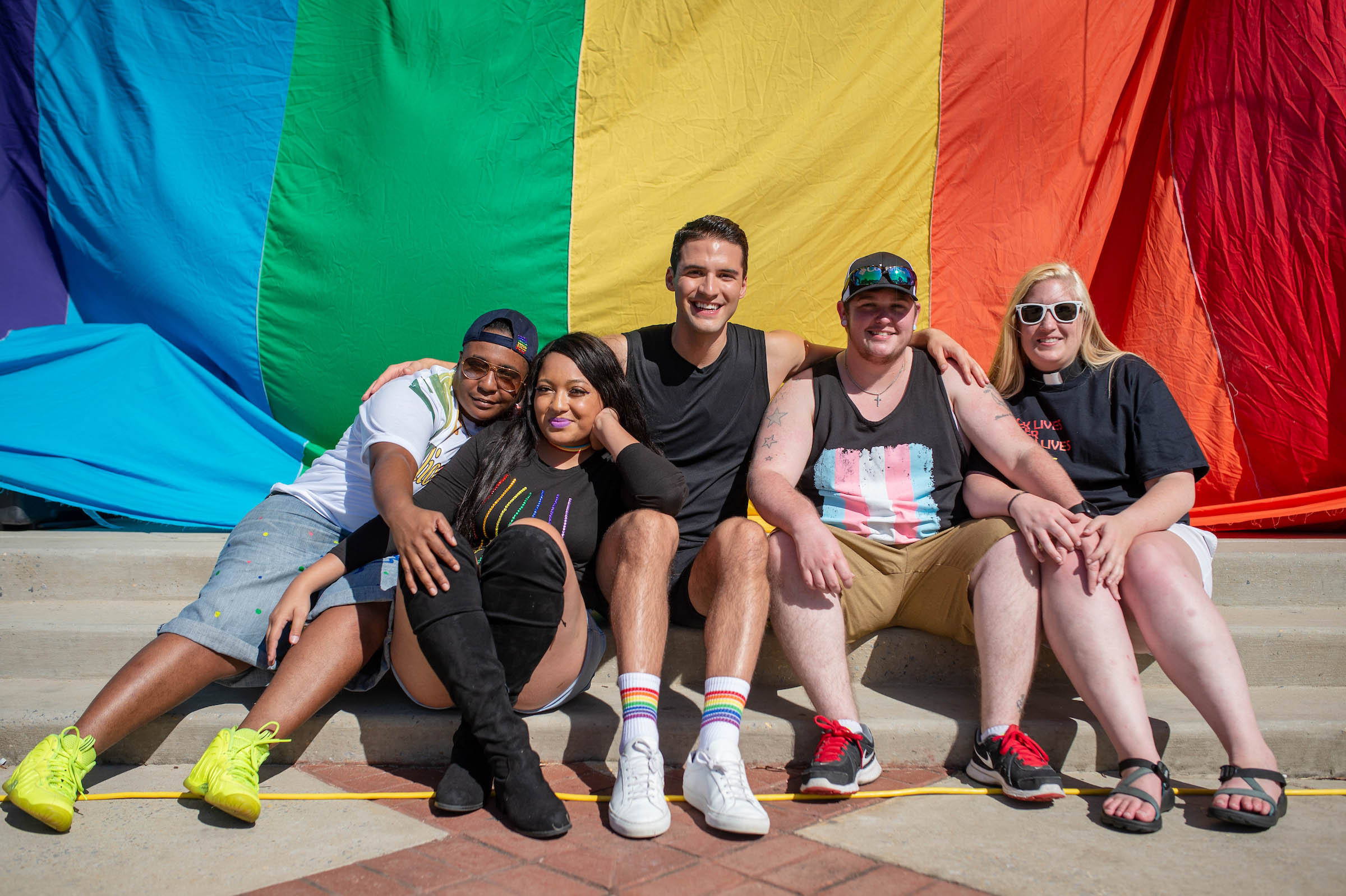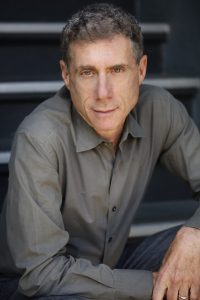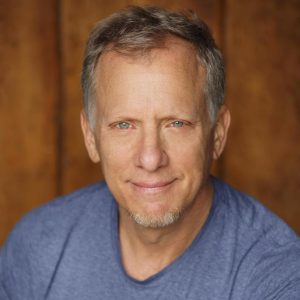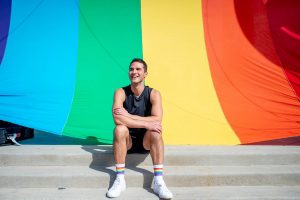
Filmmakers Rob Epstein and Jeffrey Friedman were joined by activist Raymond Braun in discussing the YouTube documentary, State of Pride.
Both Epstein and Friedman are coming off of an Oscar nomination for End Game. It was Friedman’s first Oscar nomination. Epstein previously won two Oscars for Best Documentary, Features in 1985 and 1990.
State of Pride is currently available to watch on YouTube.
How thrilling is it to premiere State of Pride at SXSW?

Jeffrey Friedman: Very. We’ve never been to SXSW before. This is our first time we’ve had a film here.
Rob Epstein: In 40 years, this is our first SXSW so we are really excited. Yeah, the festival was always kind of something that we fantasized being at so here we are.
Raymond Braun: It’s surreal to be here with Rob and Jeff, too, because they’re such iconic filmmakers who I literally learned about in college and written about. So to actually be able to work with them and then be here to do press and preparing a film together, it’s very surreal. I didn’t sleep last night.
Jeffrey Friedman: I didn’t sleep that well last night either.
Rob Epstein: I did. I slept well last night.
Rob and Jeff, you’re both coming off another Oscar nomination. How were you able to balance awards season with making sure that the film is locked in time for the festival?

Rob Epstein: (Laughs) I’m really glad you noted that. It’s been crazy. We’ve actually finishing two films at the same time so we’ve been we locked picture on State of Pride about three to four weeks ago. We haven’t slept a lot. It’s been exciting when you have a real end goal in mind like SXSW, then it makes a lot more fun than tedious.
Jeffrey Friedman: We had a lot of distraction. We weren’t able to get too stressed out about any one project because there were always other projects that needed our attention. Even for Oscar week, it was helpful to just be distracted and have things to do.
Rob Epstein: It kind of helped to keep things in perspective—that it’s really about the making. The awards are nice but the real gratification is in the making.
State of Pride sees you traveling to a variety of cities to see how Pride has evolved. How did you choose the communities?

Raymond Braun: Well, I think it was really important for us to show a range of LGBTQ stories and to explore different themes that are really front of mind when you think about pride. What city is more iconic than San Francisco when you think about LGBTQ life, queer history—I mean San Francisco and New York. Those are two prides that when you close your eyes and someone asked you about pride, that’s kind of what comes to mind for a lot of people. We really wanted to explore that. Personally, I was just excited to be there with Rob and Jeff because they have such deep roots in San Francisco as well. Tuscaloosa represents a smaller newer pride that isn’t a place a lot of people wouldn’t necessarily expect. When I told people that we were going to Tuscaloosa Pride, a lot of people had no idea that that existed. They didn’t even know that there were Prides in Alabama. For Salt Lake, we really wanted to explore how religion intersects with the LGBTQ community and Pride because it’s often used as a justification for discrimination against queer people and so it was important for us to tell that story as well.
Rob Epstein: There were certain production realities. We’re doing it within one Pride season so we had a window of time. Within that, there were geographic representations that we wanted to cover. It was really who we found and what cities and that was a casting process. We wanted to acknowledge that in the film. So there’s a whole sequence in the film where you get to see Raymond in conversation with the whole panoply of people that we were talking with.
What was the most surprising thing that you saw outside of Tuscaloosa having a Pride celebration?
Rob Epstein: I think for all of us going to a small town pride that was having its third Pride. The three of us come from big cities and you take some things for granted. So to go into a town where nothing could be taken for granted and to see it through that lens was really eye opening for all of us.
Jeffrey Friedman: I think one surprising thing for me was how much shame we found in the context of Pride. Calling the event Pride was always something that—Pride came later. It was originally Gay Freedom Day and it was originally a protest and became a celebration. When it started to become Pride, it never quite sat well with me. I never quite understood what we were supposed to be proud about and talking to people who are still feeling a lot of shame, I realized that that the concept of Pride does have meaning and that it’s still it’s still a big issue for a lot of people.
Rob Epstein: One of the reasons to do the film was to acknowledge the fiftieth anniversary of Stonewall and the antecedents of Stonewall. A surprise I think for us of this generation was to encounter some of the younger people who really had no idea about Stonewall and really didn’t know about the origins of pride.
Raymond Braun: I think that going in; one of the things I love about Pride is that everyone has a take on it. If you ask anyone in the LGBTQ community about Pride, they’re going to have an opinion and most likely, it’s a strong opinion. It was interesting and I guess surprising to see the extent to which the type of conversations that queer people are having geographically really varied. The conversation around Pride and its value and how it should be constructed and its purpose in San Francisco was really different than the conversation in Tuscaloosa. Just seeing how we’re all this one community across the country and around the world but the needs and type of conversation that we’re having based on where we grew up, our experience is very different.
Raymond, you shared your coming out story about sending a letter via FedEx for sixteen agonizing hours. How did you manage to keep yourself distracted in that time?
Raymond Braun: I stayed up all night and I drank chamomile tea. It calmed me down a little bit. I think I was listening to—I was really into guided meditations in high school because I had a lot of anxiety and going into college, too, so I just listened to my guided meditation, drank tea and waited. I got a good response. It’s actually really meaningful to me, too, that my mom is in the documentary and that she’s also going to be here for the premiere tonight. It’s such a special kind of full circle moment and the level that all my family has been so supportive of this film and this process. It makes me really happy and it makes me happy that she got to meet Rob and Jeff and get to know them a little bit, too, and just get more insight into this world.
Rob Epstein: For us, it’s very important that Raymond be a part of the film not just as a host or a guide but that he was fully invested. That was really part of the experience for all of us in making the film.
The sense I got in watching the film is that Trans Pride feels more like a protest than a celebration.
Raymond Braun: I don’t think that I can comment on behalf of trans folks. I just wanted to ask the question. I think that trans folks and non-binary folks in the movie do a really great job of explaining how they’re feeling about Trans Pride. It was so important for us to include that perspective but we didn’t want to speak on or for anyone.
I liked that you did focus on the transgender people of color especially with all the violence that’s facing the community.
Raymond Braun: Thank you so much. That’s for me a scene that I think is so important and significant. I’m really glad we were able to share Daroneshia and her work.
Rob Epstein: I think that was something that was a learning process for Jeffrey and me. Certainly, Raymond really helped and push us on that to precisely the point that they’re making in the film was why we had to make sure that they were in the film. Raymond was really insistent on that.
What do you want people to take away from watching State of Pride?
Rob Epstein: I think the whole issue of inclusion. I’m sure there are going to be people that are upset that they feel like we missed something. I think that’s important and that’s part of the message of the film. That’s something we have to all be ever attentive to when that will always be changing and part of the conversation that we need to have. I would say really that’s probably the major takeaway.
Raymond Braun: For me, I see Pride as kind of like this kaleidoscope. You can’t possibly create one piece of content that’s going to reflect every perspective, identity, lived experience in our LGBTQ community because we’re as diverse as the broader population. For people to just take a moment during Pride season especially to reflect on the origins and to learn the history and to watch it and engage with it and think about what their own relationship is to Pride and the idea of it in their community is important to us. I’m just really excited, too, that it’s going to be available exclusively on YouTube streaming in the spring and that kids no matter where they are in the world can watch it. I have heard a lot of stories from young LGBTQ people who are living in isolated communities or rural or conservative communities like where I grew up. The Internet and social media are really their refuge. It’s where they’re able to connect with stories from people like them and find a sense of a lifeline if they don’t see it in the flesh. The idea that there are going to be kids that are putting their headphones in and watching State of Pride at night and seeing what’s out there for them in the future makes me really happy.
Jeffrey Friedman: That there is no one state of Pride. You can’t just say this is where we’re at now as the LGBTQ community. It really varies depending on who you are, where you are, or what part of the world you come from. There’s still a wide range of experiences and a lot of work still to be done.
Raymond Braun: Like Rob said, I’m so excited about the conversations that will hopefully be sparked or inspired by the film and hearing everyone’s thoughts and opinions on Pride. It’s like what I said in the film that it really is a looking glass into that community and how a community or an individual reacts to Pride can tell you a lot.



